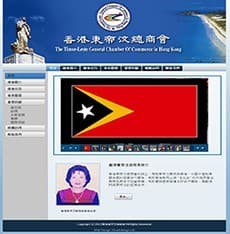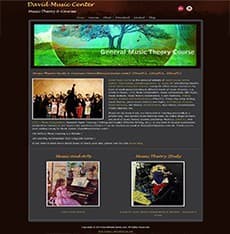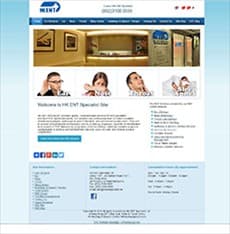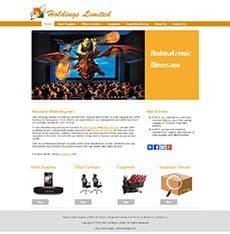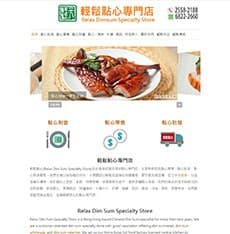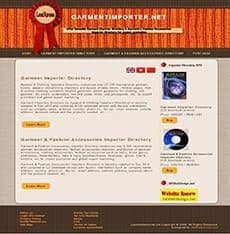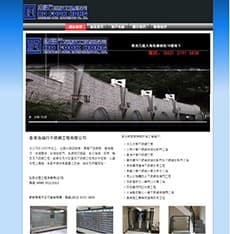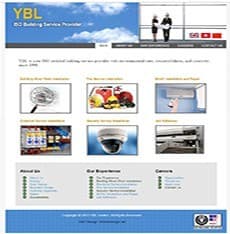Glossary for e-Commerce
 HKWebDesign.net provides this e-commerce glossary to explain some terms and glossary on our web design, website redesign, and eshop (e-commerce) solution. If you have any question, please feel free to let us know.
HKWebDesign.net provides this e-commerce glossary to explain some terms and glossary on our web design, website redesign, and eshop (e-commerce) solution. If you have any question, please feel free to let us know. Admin panel
Admin panel is the short form of Administrative panel which is the private section of estore where orders, catalog, content, and configurations are managed.
B2B
B2B stands for Business-to-Business which describes a commercial relationship among businesses over an intranet, extranet or internet.
B2B Markets
B2B Markets stands for Business to Business markets which are digital platforms that allow companies to do business with each other directly or through a third party.
B2C
B2C stands for Business-to-Consumer which describes businesses selling products and/or services to end consumers.
Backbone
A backbone is the high speed communication links that connect Internet service providers and other large Internet sites.
Bandwidth
Bandwidth refers to the speed of data on Internet connections.
Bandwidth Transfer
Bandwidth transfer is the amount of data the web hosting plan allows you to transfer to site visitors in a given month. It includes any data (web pages, images, sounds, music, and download files, etc.) to be sent to site visitors.
Bank card
Bank card is a debit or credit card issued by a bank or financial institution.
C2C
C2C stands for Consumer-to-consumer which describes e-commerce of transactions between consumers through a third party. It is usually used at the online auctions. One of the most popular C2C platforms is eBay.
Chat
A chat is a communication tool used in online business for a direct and quick exchange of information between customer and company in written and real-time over the internet.
Checkout
Checkout is the process of gathering the payment and shipping information to complete the purchase of items in the shopping cart. It is the final step of purchase on an e-commerce shop that the customer reviews and places the order online.
Click-and-mortar
Click-and-mortar is a term which describes a business model where a company combines both offline and online activities for doing business with its customer.
CMS
CMS stands for Content Management System which is a software system used to create, edit, and maintain content on a website.
Conversion
Conversion is a marketing term that indicates a goal has been reached. If the goal is to sell a product, conversion is reached when a site visitor becomes a buyer.
Conversion probability
Conversion probability is the probability that site visitors will purchase goods in relation to all visitors on e-commerce shops. To enhance the conversation probability, the e-commerce shops should demonstrate that they are trustful.
Conversion rate
Conversion rate is the percentage of visitors who are converted into buyers on an e-commerce shop.
Cookie
A cookie is a small text file that is saved on the site visitor’s computer and used as a temporary holding place for information related to the visitor’s activity on the website. In the EU, websites are required by law to obtain consent from each visitor before using cookies to store information related to the individual’s use of the website.
Cross Selling
Cross Selling desrcibes the selling of complementary products on e-commerce shops.
DNS
DNS is the domain name system which translates domain names in IP addresses.
Domain Name
Domain name is the name used to identify a web site or an e-commerce shop.
Download
Download is the process to transfer files from a server or host computer to one's own computer.
Drop-Ship
Drop-Ship is a form of retail in which the retailer transfers his customer’s orders to a wholesaler or manufacturer, who then ships directly to the customer, without keeping any physical stock of goods sold.
E-business
E-business stands for electronic business which includes all kinds of business processes which are handled electronically. It therefore includes e-commerce, e-procurement, etc.
EBPP
EBPP stands for Electronic Bill Presentment and Payment in which the company sends the bill by using the internet (e.g. an email) and the customer pays it in an electronic way.
Firewall
Firewall is a security software or hardware that blocks unauthorized access to a computer or network based on specific criteria.
Electronic Commerce
Electronic Commerce is also known as e-commerce which means the buying and selling of information, products and services by using the internet.
Encryption
Encryption is the conversion of data in such way that it cannot be read or understood without knowing how the data is encoded. Encryption is generally used as a security measure to protect data, software coding, and for communication.
E-Zine
E-Zine is an online newsletter.
FAQ
FAQ stands for frequently asked questions to provide supports for the site visitors.
FTP
FTP stands for File Transfer Protocol which is a protocol used for uploading or downloading files over the Internet. Webmasters often use FTP to upload webpages and files to their web hosting server.
Incoterms
Incoterms are the trade terms published by the International Chamber of Commerce (ICC) and are commonly used in international contracts (e.g. FOB, CIF, etc.).
Live Support
Live support is an instant assistance application provided to website users in customer service (e.g. answering questions, solving problems, taking orders, etc.).
M-Commerce
M-Commerce stands for mobile commerce which is business transactions conducted via a mobile phone or device.
Merchant account provider
Merchant account provider is a bank or other institution that provides accounts to merchants to process online credit card transactions.
Newsletter
Newsletters are publications which are regularly distributed, mostly via email, to its subscribers. Many e-commerce shops often sent newsletter to inform subscribers about special offers.
Offline
Offline or off-line is anything not connected to a network such as the World Wide Web.
Online
Online or on-line is anything connected to a network such as the World Wide Web.
Online marketplace
Online marketplace is a trading platform. The example is ebay and amazon market place.
Online shop
Online shop is a trading platform that gives retailers the possibility to sell goods and services over the internet and that provides consumers online with product information. Websites containing directories of many online shops are called Online Malls.
Order management system
Order Management System is the application that enables online merchants to process, track, and organize orders.
Order tracking
Order tracking is an online tool which gives the buyer of a product information about the status of the purchased item.
Payment gateway
Payment gateway is a service provided to e-businesses and online retailers that authorizes online payments. The payment gateway providers try to protect critical consumer data (e.g. personal and credit card information) by using encryption to ensure that this data can be securely exchanged between the seller, the consumer, and other parties like banks and credit card companies.
PayPal
PayPal is a global leader in online payments and a fast and secure way for customers to pay online.
s
PCI
PCI stands for Payment Card Industry which refers to debit and credit cards and their associated businesses.
Privacy policy
Privacy policy is a statement that declares a firm's or website's policy on collecting and releasing information about a visitor.
Return policy
The return policy is a statement that determines the conditions under which a merchant allows a costumer to return a purchased product.
SaaS
SaaS stands for software as a service which describes a software delivery model where the vendor provides the software and hosting environment, and customers pay for the service by subscription or per use.
Security certificate
Security certificate is a third-party verification of a website's identity in order to establish trust.
Shipping carrier
Shipping carrier is a transport company used to ship goods sold to customers. Common carriers include UPS, FedEx, DHL, and Hong Kong Post, etc.
Shopping cart
Shopping cart is an online shopping software commonly used in online shops or e-commerce platforms which allows people, during online-shopping, to collect all preferred goods in a shopping cart first and then buy and pay them all together after having made all choices.
SSL
SSL stands for Secure Sockets Layer which is a protocol used to transmit documents over the internet in an encrypted format. This is generally used for securing credit cards information during online payment.
Theme
Theme is a package that contains graphics and appearance information, and customizes the look and feel of the estore.
T-commerce
T-commerce is electronic commerce conducted via interactive television.
URL
URL stands for Uniform Resource Locator which is an address of a file located on the internet.
Visitor
A person that visits a web site.
Web analytics
Web analytics is the study of visitor’s activity on a website or web application to understand how well it fulfils its objectives.
Web host
Web host is a business that provides web hosting services for a website and/or estore.
Webmaster
Webmaster is an individual that creates or manages a web site and/or estore.

